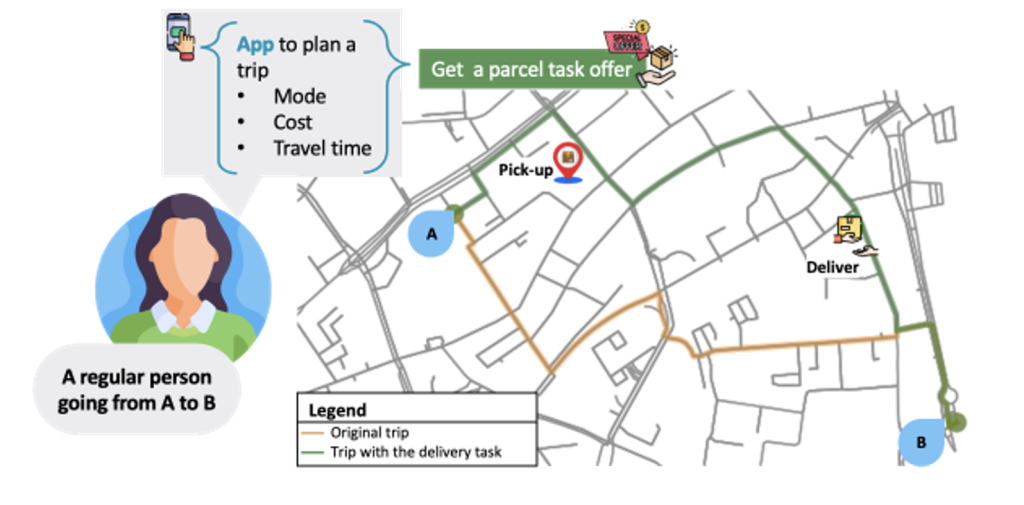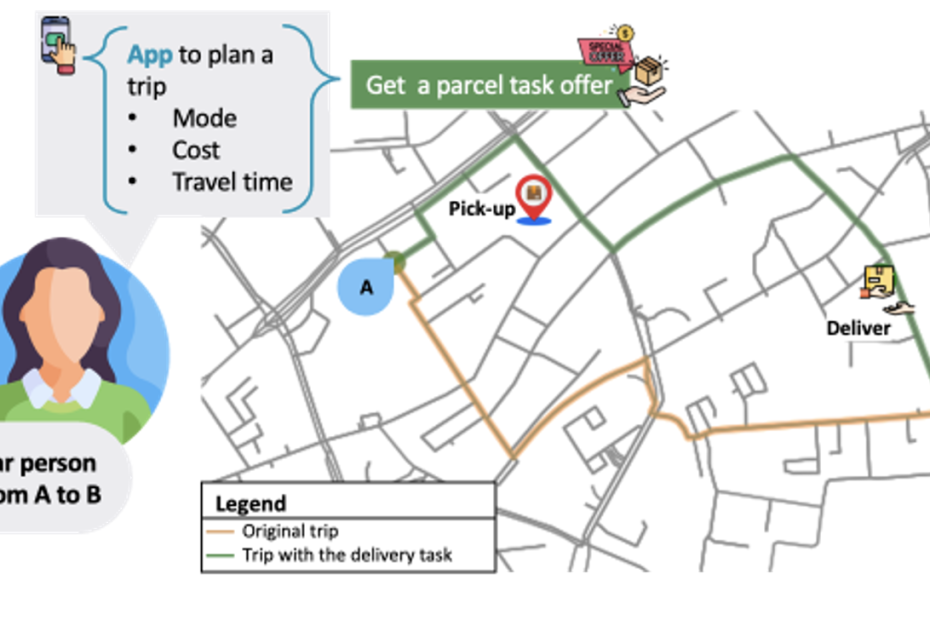Author: Andrea Dominguez Gamez
Urban delivery systems are facing increasing strain due to the continued rise of online shopping. This is leading to more congestion, higher emissions, and growing inefficiencies. Our research examines crowdsourced delivery, a model that relies on the potential of existing trips to transport parcels. This approach, using digital platforms, offers a potentially more sustainable and cost-effective alternative to traditional last-mile delivery.
To better understand the feasibility of this model, we conducted interviews with 13 stakeholders from the e-commerce sector, courier companies, mobility service providers, and local government. Their insights are highlighted four key areas:
· Market Trends: Concerns include delivery reliability and demand predictability, but interest is growing in greener solutions.
· Business Models: Revenue challenges and liability risks persist, yet new income streams may emerge for mobility companies.
· Technical feasibility: Integrating various transport and logistics digital infrastructure can be complex, but new technology developments are making it easier.
· Regulatory frameworks: policies promoting green urban logistics exist, but enforcement and coordination are limited. Such an innovative and dynamic solution needs a flexible, adaptive framework.
Looking ahead, our next steps include developing a business model canvas based on these insights and evaluating the carbon impact of crowdsourced delivery, to test how such systems could work in practice.

